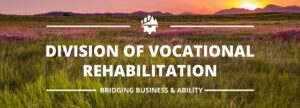

Partnership provides youth opportunity
for career development
Finding a job can feel monumental. Especially if it’s your first time, you’re a teenager, and you have neither experience or a high school diploma. It’s even harder if you have a disability or have had trouble in the school or the community. YouthZone, the Colorado Workforce and the Department of Vocational Rehabilitation recently joined hands to give youth a boost into developing a career path.
Samantha Freese, the Youth Career Coordinator for Colorado Workforce, said by working together, kids in YouthZone’s programs will have a smooth handoff into adult opportunities when they turn 18.
Many of the kids Samantha works with through Colorado Workforce are at risk of dropping out of school or have already dropped out of school. Some of these young people are on probation or parole. Working from Aspen to Parachute, her goal is to work within the school system and with guidance counselors to help kids re-engage with school, get a GED, find work after graduation or continue schooling.
Working with YouthZone’s trained clinical staff, Airen Goodman, the CYCD program coordinator for the 9
th Judicial District, will determine which clients need the additional programming. As the vendor in this new arrangement, YouthZone will start the potential connection the minute a young person goes through an intake.
Libby Walters, MA, LPCC, Regional Lead Counselor for Transitioning Youth, rounds out the intentions for each child in a vocational counseling role. Libby provides support to Garfield, Pitkin and Eagle counties’ youth with disabilities and mental health diagnoses. Her job as a counselor is to help those with differing abilities show appropriate work behavior and social skills. She will be their advisor as they determine their career paths, and she will help them develop skills to self-advocate.
YouthZone offering the required education component is essential, Libby said. Airen worked with Libby and Samantha to develop a curriculum of five classroom opportunities that each participant will need: job exploration; work-based learning experiences: counseling on post-secondary education programs; work readiness training; and instruction in self-advocacy. The classes include topics like personality and skills assessment, self-respect and self-advocacy, improving well-being, understanding resources available to them, communication skills, the power within decision making, life skills and career exploration.
With a diagnosed disability by a letter-licensed counselor, the state’s Vocational Rehabilitation program provides on-going support as youth age out of YouthZone. They will help in the transition into adulthood with job coaching support, continued education and internship opportunities. “It is important kids have the right referral stream,” Libby said.
Through the Youth Workforce, Samantha teaches employability to 14 to 24-year-olds. By starting with an interest profile and skills assessment, she can outline their pre-employment readiness. She may start with the basics of filling out resumes and learning job interview techniques, and then she coordinates community experiences like field trips to local businesses. She can also connect her young clients to apprenticeships and internships. Her goal is to help high school graduates make the connections they need for a future career.
This partnership will include financial support for YouthZone’s individual counseling and Life Skills classes and some funding for YouthZone’s Useful Public Service, where young people work to repair harm to the community and to themselves.
The Youth Workforce program and the youth vocational counseling through Vocational Rehabilitation are model programs for rural communities. If they are successful, this youth-oriented program orientation could be used as a template for other rural areas that have less accessibility to programs that are common in Colorado’s urban communities.


